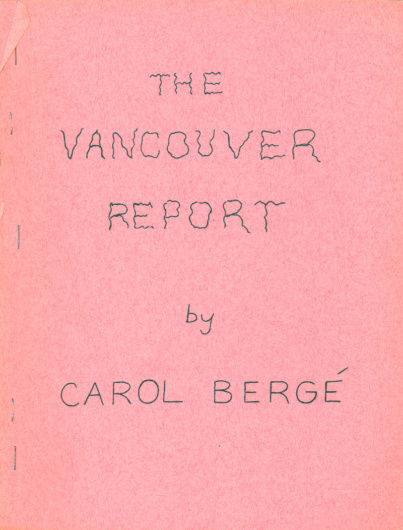Poetry conferences at Vancouver (1963) and Berkeley (1965) were significant events that brought together and introduced a range of poets from diverse locations and temperaments. Warren Tallman was the man behind the conference in Vancouver, an event Robert Creeley described as “landmark” in that it brought “together for the first time, a decisive company of then disregarded poets such as Denise Levertov, Charles Olson, Allen Ginsberg, Robert Duncan, Margaret Avison, Philip Whalen and myself, together with as yet unrecognized younger poets of that time, Michael Palmer, Clark Coolidge and many more.”
The conference at Berkeley in July of 1965 further galvanized the gains made by the Allen anthology and the Vancouver event. Mostly organized and emceed by Thomas Parkinson and Robert Duncan, it featured readings and lectures by, among many others, Charles Olson, Jack Spicer, Allen Ginsberg, Gary Snyder, Ed Dorn, Robert Creeley, John Wieners, Ed Sanders, Ted Berrigan, Joanne Kyger, Lew Welch, Ron Loewinsohn, John Sinclair, and Victor Coleman. For the senior poets, the Berkeley conference was at once a triumphant victory and the beginning of the end. In the years immediately following the conference, a general emigration of spirits took place. Jack Spicer’s lecture on poetry and politics was to be his last public appearance; he died a month later. Within the next couple of years, a great many of the participants in the San Francisco Renaissance had moved from the area or passed away. Yet for many of the younger poets in attendance, the Berkeley Poetry Conference was the flash point of the mimeo revolution, the place from which much of the writing and publishing just ahead was to locate its identity and its momentum.

Carol Bergé, The Vancouver Report (New York: Fuck You Press, 1964).


![Charles Olson Reading at Berkeley ([San Francisco]: Coyote Books, 1966). Transcribed by Zoe Brown.](https://fromasecretlocation.com/wp-content/uploads/2016/09/charles-olson-berkeley-r-360x487.jpg)